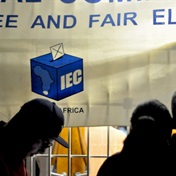Seldom has the state of a nation and its Parliament so reflected the state of its leader: one who seeks control when order is needed; who is lethargic despite the opportunity for greater things; is self-important despite the veracity of overwhelming critique; and retrospective when the opportunity of the future beckons.
Points of order are used to try to minimise the damage, but it is not the same as points of control. The latter insist on privilege, on the enforcement of power held by the select (and elected) many.
Enter the Economic Freedom Fighters. They may face criticism for their vociferous protests, but in doing so, they show that the reinforcement of the status quo by those in power is not the creation of order; it is the masking of chaos.
It would have been far worse if Parliament had continued as usual with the state of the nation address (Sona) while chaos reigned in the streets. In this sense, the opposition ensured Parliament reflected the reality of the state of the nation: disorderly, lacking direction, a victim of past and current privilege.
By allowing only certain parties to speak, the joint chairs of the House showed just how skewed the privilege of protest has become.
Needless to say, the man of the hour did little leadership work to move things into the future. With his mention of Operation Phakisa, feedback on Sona 2015’s nine-point plan and a clichéd call for a back-to-basics approach, a more promising future is unlikely. We cannot return to basics when the basics have never been in place.
But a nation is not its leader; their futures are not concordant. Long after the tenure of the once-great leader, the nation remains. The state of a nation is also not its past. The past was its previous state. This, of course, informs its current state, but an inspiring leader aims to present an alternative future. Leaders are, as Napoleon observed, dealers in hope.
The state of a nation is better defined in terms of its positioning for a more promising future, not in defence of its poor current state due to its even poorer past.
One might have expected that an appeal to hope could have been the last vestige of President Jacob Zuma. For what remains when promises have been broken and morals left shattered along the way?
South Africans are shivering in the long shadow of a leader whose true stature is becoming ever clearer. He certainly did not play small. Quite the contrary; bravado and impunity, accentuated by flippant, inane laughter, characterised his speech – as it has his presidency.
Has South Africa accepted a shadowy identity, or that of its president, to try to avoid oppression by the powers that be? The sad state of education and our high unemployment levels are some of the souvenirs left by the leader at the base of the rainbow. The integrity of Parliament, too, has been left in tatters in his wake.
But the counterintuitive salvation is that new and improved parliamentary rules will result from this leader’s missteps.
Mostert is director of the Institute for Futures Research at the University of Stellenbosch Business School




 Publications
Publications
 Partners
Partners








